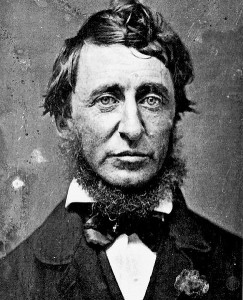
In 1839, Henry David Thoreau and his brother made a river voyage in a boat that they built themselves. This voyage became the subject of Thoreau’s first book, A Week on the Concord and Merrimack Rivers, published in 1849 at his own expense. In this thirty-three minute excerpt, Thoreau finds himself describing the incredible beauty and serenity of the natural scene around him. But his mind wanders into a profound examination of poetry and the requirements of good writing. His call to man for a life of poetry and his demand that writers create simply from an impulse to action are powerful and true. I don’t think there is a better piece of advice that exists for writers and readers alike.
Thoreau frequently quotes from Homer’s Iliad and other sources in this piece. I have tried to separate his quotes with pauses and a change in reading tone. You might want to glance at the actual words as you listen for clarification.
Here is the text of the reading:
What would we not give for some great poem to read now, which
would be in harmony with the scenery,–for if men read aright,
methinks they would never read anything but poems. No history nor
philosophy can supply their place.


